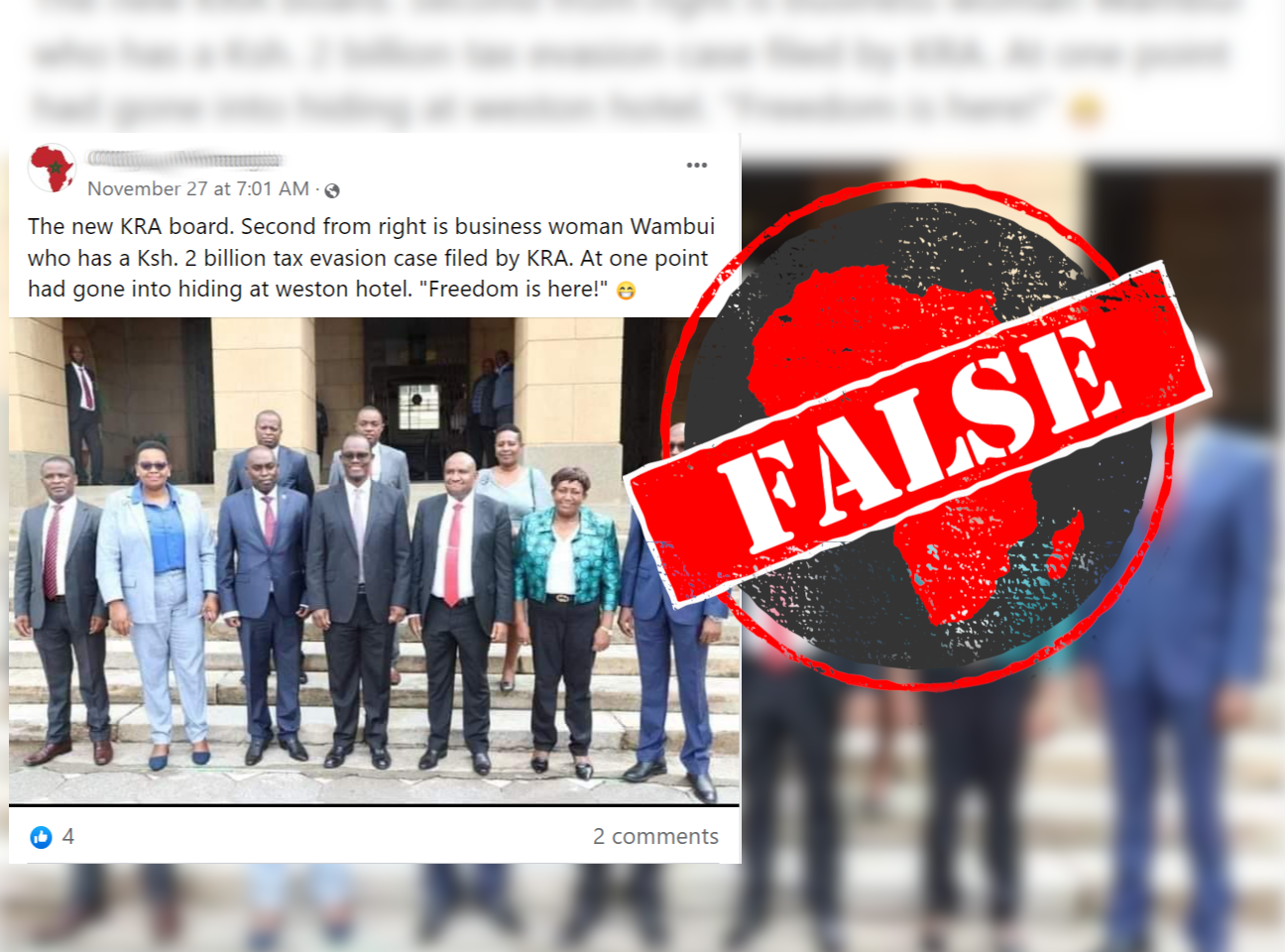IN SHORT: Businessperson Mary Wambui’s tax affairs have put her on the radar of the Kenya Revenue Authority. But despite her political connections, she has not been appointed to the tax agency’s board of directors.
A Facebook post claims that a businessperson in the crosshairs of the Kenya Revenue Authority (KRA) has been appointed to its board of directors.

“The new KRA board. Second from right is business woman Wambui who has a Ksh. 2 billion tax evasion case filed by KRA. At one point had gone into hiding at weston hotel. ‘Freedom is here!’” the November 2022 post reads.
It includes a photo, supposedly showing new board members of the KRA’s new board members.
In 2021, Kenyan media reported on Wambui’s saga with the KRA. It included allegations that she hid in William Ruto’s Weston hotel in the capital city of Nairobi. Ruto was then deputy president. After winning the August 2022 elections, he is now Kenya’s president.
Wambui is known for her deep political connections.
In October it was reported that KRA had sought to settle its case against her out of court.
In December, Ruto appointed Wambui as chair of the Communications Authority of Kenya board.
The claim has been posted here, here, here, here and here on Facebook.
But has Wambui really been appointed to the KRA board?
KRA says Wambui not member of board
In November 2017, Ruto picked a new KRA board chair, Anthony Ng’ang’a Mwaura, who headed the elections board of the United Democratic Alliance party, which had Ruto as its flag bearer in the 2022 elections.
We checked the KRA’s website and Wambui is not listed on the leadership team. The tax agency also confirmed to Africa Check that she is not part of the board.
Republish our content for free
For publishers: what to do if your post is rated false
A fact-checker has rated your Facebook or Instagram post as “false”, “altered”, “partly false” or “missing context”. This could have serious consequences. What do you do?
Click on our guide for the steps you should follow.
Publishers guideAfrica Check teams up with Facebook
Africa Check is a partner in Meta's third-party fact-checking programme to help stop the spread of false information on social media.
The content we rate as “false” will be downgraded on Facebook and Instagram. This means fewer people will see it.
You can also help identify false information on Facebook. This guide explains how.




Add new comment